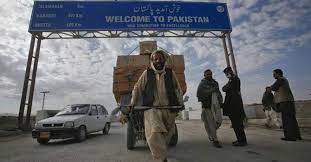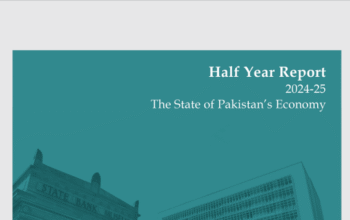By Staff Reporter
KARACHI: Pakistan has imposed new fees and restrictions on the transit trade with Afghanistan, blocking hundreds of containers bound for the landlocked country at Karachi port and banning the export of 212 items, including chocolates, footwear, and garments.
The moves, which came days after Pakistan announced a 10 percent processing fee on several items under the Afghan transit trade agreement, have angered Afghan traders and officials, who say they are facing millions of dollars of losses and unfair barriers to their commerce.
Pakistan says the measures are necessary to prevent smuggling and ensure proper taxation of the goods that pass through its territory to reach Afghanistan. Customs officials suspect that some goods destined for Afghanistan are secretly brought back into Pakistan, undermining the local industry and tax revenue.
Pakistan, which shares a 2,600-kilometer (1,600-mile) border with Afghanistan, has been a key transit route for Afghan imports and exports for decades. Islamabad has offered tax and duty exemptions on various commodities and allowed trade in rupees to support its neighbor.
The commerce ministry in Islamabad said in a notification last week that it had banned the export of 212 items to Afghanistan under the transit trade agreement, which aims to facilitate the transit of goods exported from and imported to Afghanistan using the Pakistani ports in Karachi and Gwadar.
The pact also envisages the use of Afghan territory for trade between Pakistan and the Central Asian countries.
Witnesses said hundreds of Afghanistan-bound containers were stuck at Karachi port after the authorities refused to clear the banned items. Some of them had been waiting for more than a week, they said.
Afghan transit trade through Pakistan surged 39 percent in the past year, reaching a record high of more than 100,000 containers, despite the political turmoil and economic challenges in the landlocked country.
The import value of items such as cotton fabrics, electrical appliances, tyres, tea, and perfumes surged 63 percent to $3.73 billion in the fiscal year that ended June 30, according to data from Pakistan Customs. The quantity of these items increased by 48 percent to 1.8 million tons.
The Afghan embassy in Islamabad said in a statement this week that Pakistan had also asked Afghan traders for 100 percent bank guarantee on transit cargo, which was beyond their ability.
The embassy said it had tried to resolve the trade-related issues with the Pakistani authorities, but they had only worsened.
It urged Pakistan “to remove these obstacles in the Afghan transit sector, so as not to have a negative impact on the commercial and bilateral relations of the two countries.”
Afghanistan relies heavily on Pakistan for its trade and transit needs, as it has no direct access to the sea. According to the World Bank, Pakistan accounted for 43 percent of Afghanistan’s exports and 29 percent of its imports in 2019.
But the trade relations between the two countries have been strained by political tensions and security issues.
Recently Pakistan announced a 10 percent processing fee on several items imported from Afghanistan under a transit trade agreement, a move aimed at curbing the illegal entry of goods into the country.
The fee will apply to goods such as confectionaries, footwear, machinery, blankets, and garments that are imported into Afghanistan via Pakistan, according to a customs department notification. The notification said the fee will not affect goods declarations filed before the decision.
The measure comes after Pakistan launched a crackdown on smugglers and black marketers last month to stabilise the value of the rupee and ease inflationary pressure.
Copyright © 2021 Independent Pakistan | All rights reserved




